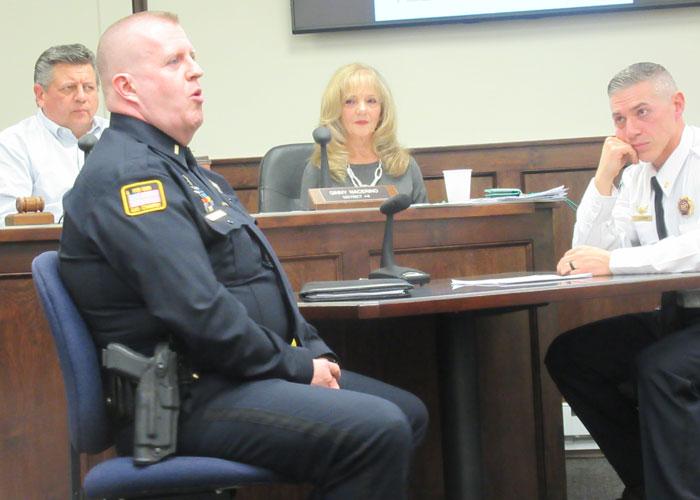CARMEL – Automatic license plate readers are devices that can be mounted on police vehicles or fixed on poles that scan the license plates of all vehicles passing by capturing not only the tag’s number but the date, time and location.
The specialized digital cameras and computers convert the large numbers of photographs to text and compare them to license plates of interest contained on a “hot list” that is downloaded into the reader which may include data from terrorist watch lists, stolen cars or parking scofflaws.
The system alerts police if a license plate matches a plate of interest.
Since every plate is scanned regardless of whether that tag matches a plate on the ‘hot list,” data is automatically collected about innocent people as well.
Members of the Putnam County Legislature’s Protective Services Committee spent an hour last week discussing the procedures and protocols related to license plate readers and decided on a need for an official policy before funding for additional readers was approved.
District Attorney Robert Tendy who is December appeared before the committee requesting a fund transfer from his asset forfeiture account to purchase four license plate readers for the Cold Spring Police Department, told the panel consisting of Paul Jonke, Neal Sullivan and Ginny Nacerino that the electronic devices can “also help exonerate people. They are very useful tools for both sides of the law. Many situations exist where crimes are discovered years later. Often times, it may be a body. Currently the readers might not be useful for law enforcement to go back to 2010 since data was not recorded at that time but in 2027 it might be important to a case to ascertain what was happening in 2020 depending on what was found.”
Tendy assured the lawmakers that license plate readers were “subject to the restraints of the U.S. Constitution as well as 4th Amendment restrictions and a judge’s determination as to what the restrictions mean. There are always going to be concerns regarding overzealous law enforcement. License plate readers are simply another aspect of the proper understanding and use of the 4th Amendment requirements and procedures.”
Members of the committee expressed concern since the county has no policy on the books regarding the privacy issues and use of the readers.
“Policies and procedures must be in place,” said Sullivan while Nacerino said “People value their privacy.”
Sheriff Robert Langley told the lawmakers that “Ninety-five percent of the data is never looked at. License plate readers are invaluable tools for law enforcement crime prevention strategy. The addition of the units will make our communities safer.”
The legislators remained concerned about issues of privacy.
Sheriff’s Captain James Babcock advised the legislators that the sheriff’s office, along with Carmel and Kent police departments have been using license plate readers for the past decade. “We have worked with state and federal authorities to solve serious crimes with the assistance of the technology. No one abuses it.”








